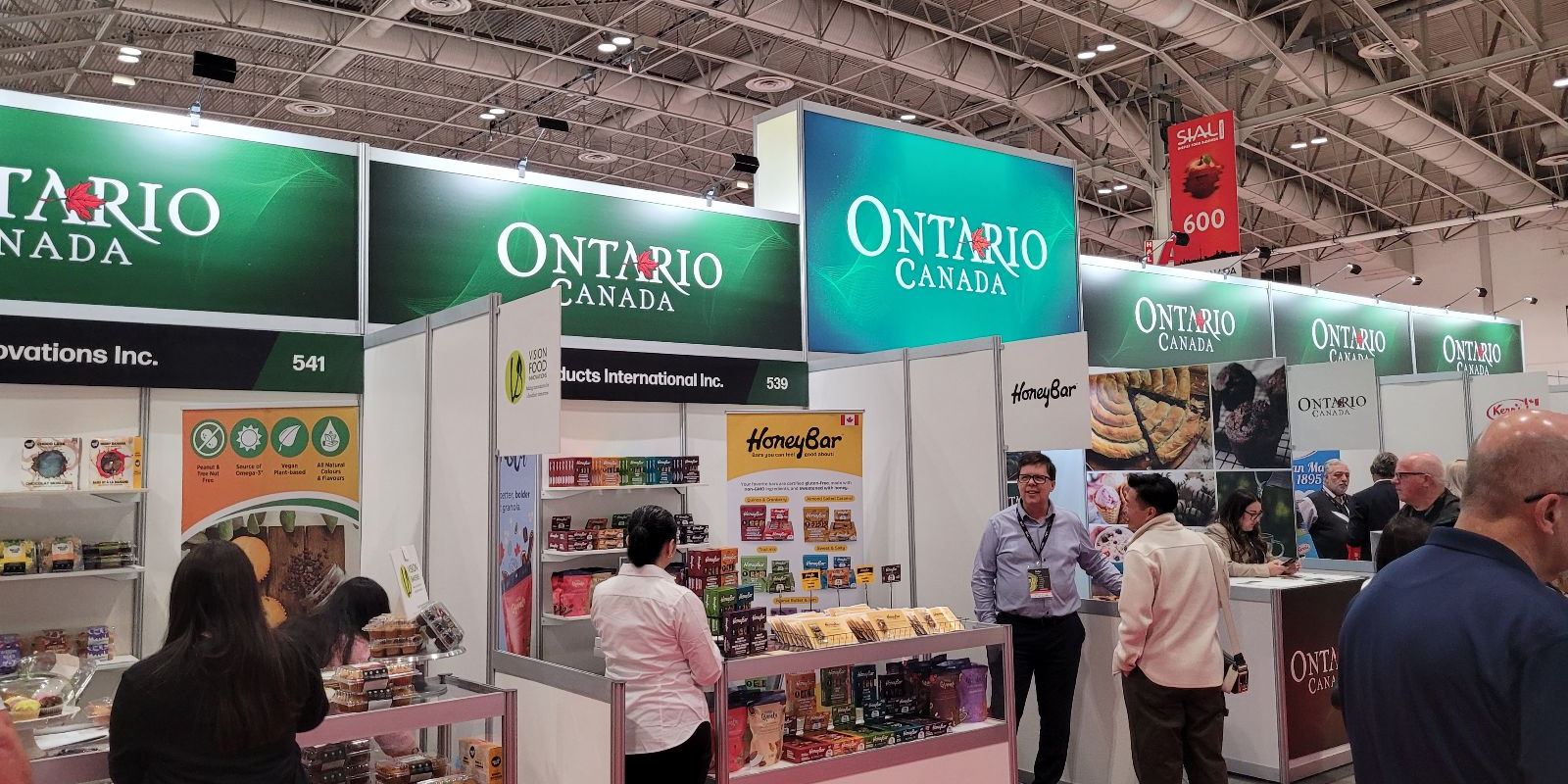Sourcing with purpose: What food SMEs told us
By Emily Nanne, Agri-food Advisory Services
Earlier this month, I had the pleasure of attending SIAL Canada in Toronto, one of the country’s largest agri-food trade shows. With hundreds of food innovators under one roof, it was a prime opportunity to meet with small and medium-sized enterprises (SMEs) that are driving growth and creativity in Canada’s food landscape.
As someone who has spent years supporting SMEs in the agri-food sector, I see firsthand how essential market access events like SIAL are. For many early-stage and scaling food businesses, these trade shows offer invaluable exposure to buyers, retailers, and international partners. But beyond the product sampling and deal-making, SIAL is also a platform for dialogue about innovation, resilience, and the future of sustainable food systems.
On behalf of FoodBridge, I took the opportunity to engage with Ontario-based companies to ask a timely and important question: Does it matter to your business whether the grains or ingredients you use are grown using regenerative agriculture practices? The answers varied, but the conversations revealed a growing awareness among SMEs about the role they play in supporting sustainability through their procurement practices.
Some companies had already begun exploring regenerative sourcing as a way to align with their brand values and meet the expectations of conscious consumers. Others expressed interest but noted barriers such as limited or unknown supplier availability or cost concerns. These insights are critical as FoodBridge continues to support producers and supply chain partners in designing programs that connect sustainable production with market demand.
FoodBridge is uniquely positioned to link sustainable producers with innovative food businesses who want to do better for people and the planet. Attending SIAL reinforced the importance of this work and the potential for collaboration across the value chain.
The products I sampled were delicious, the people were inspiring, and the opportunity to connect sustainability with sales strategy was energizing. As we look ahead, I’m excited about deepening these conversations and helping SMEs turn sustainable sourcing from a nice-to-have into a competitive advantage.
Watch our video where, Beth Hunter of FoodBridge joined Tori Waugh from the Ontario Soil Network and regenerative farmer Norm Lamothe of Woodleigh Farms to spotlight a powerful truth: transforming our food systems requires deep collaboration across the value chain.
If you’re an SME looking to explore sustainable sourcing or a producer interested in supplying to values-driven brands, we’d love to hear from you!
Reach out to connect with our team and be part of building a more regenerative future for Canadian food.






